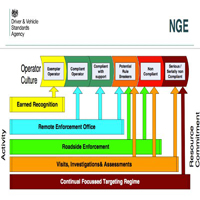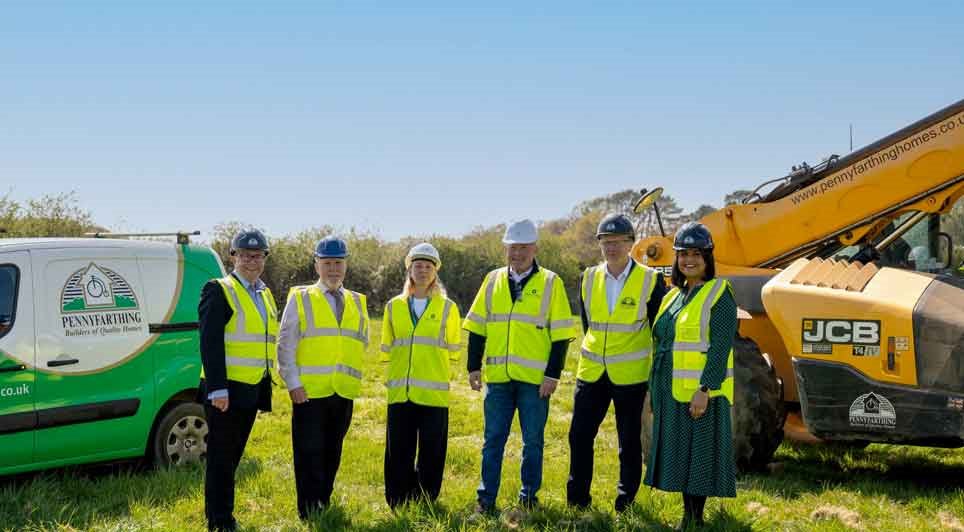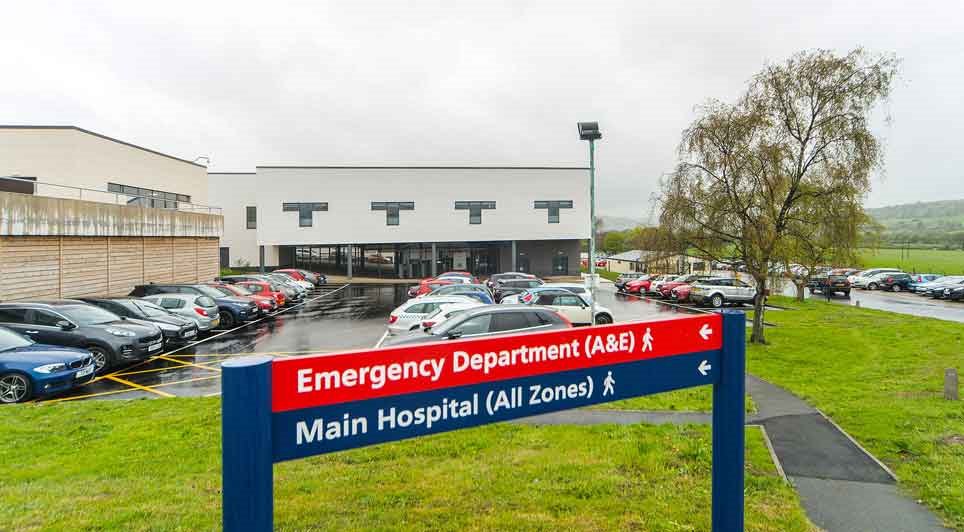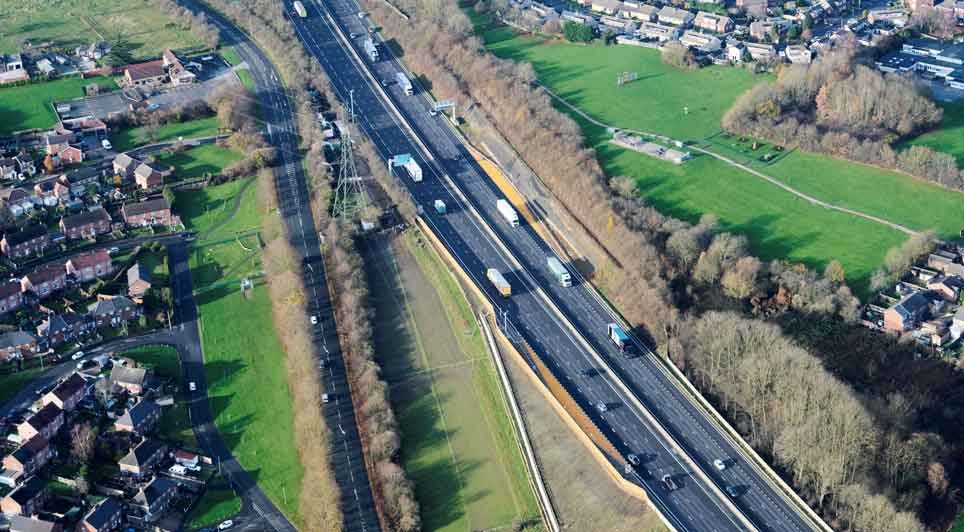In May Caroline Hicks, the head of enforcement at the DVSA, spoke to delegates at the Microlise transport conference, saying she wanted to 'completely transform' the way the DVSA carries out enforcement on both HGV's and LGV's.
Hicks said: "As soon as you choose to be non-compliant the costs will increase and they will keep increasing so that no business can afford to sit in that non-compliant area."
This is not the first time Hicks has suggested a fundamental change in the way the DVSA monitor fleet operator compliance.
In December last year she spoke at the BVRLA (British Vehicle Rental and Leasing Association) industry conference, where she talked of the 'Next Generation Enforcement' and the DVSA aspiration of 100% compliance not only with HGV operators, but with all vehicle operators.
Referring to the independent research carried out into the current culture within the road transport industry Hicks discussed the current enforcement model and why this dated system is no longer cost effective.
The research identified 6 types of 'Operator Culture' within the industry:
• Exemplar.
• Compliant.
• Compliant with support.
• Potential rule breakers.
• Non-compliant.
• Seriously / serially non-compliant.
Enforcement Today
The current enforcement model is out dated and no longer cost effective. The DVSA currently conduct approximately 10,000 roadside inspections every month and Hicks confirmed that the cost of a single roadside inspection to a major haulier could be in the region of £4000.
Roadside inspections are intrusive and leave most exemplar and compliant operators feeling disenfranchised with the enforcement process.
Next Generation Enforcement
The DVSA propose to completely transform the enforcement model with an operator recognition scheme similar to FORS (Fleet Operator Recognition Scheme).
The exact workings of this scheme lack details at the moment, however Hicks has alluded to a 'light touch earned recognition scheme' for those who are compliant and a 'focused targeting regime' for those who fall into the seriously non-compliant category.
The image below is taken from the presentation made by Hicks at the BVRLA industry conference and shows how the DVSA propose to shift from enforcement to compliance.
Are you ready for next generation enforcement?
At the moment very little is known about exactly how the DVSA plan it implement and control this recognition scheme and how this will tie in with your OCRS (Operator Compliance Risk Score).
However, it is expected that the DVSA will be asking operators for significant access to a selection of their records, such as maintenance, tachograph and working time, in order to verify their compliance and position the operator correctly in the new scheme.
For many operators this could mean big changes in the way they currently keep records in order to provide these to the DVSA digitally as well as additional administration time to ensure all records are kept updated on a regular basis.
However, the potential savings by avoiding the need for roadside checks for all those in the exemplar to compliant with support categories will be worth it in the long run.
Construction News
07/07/2015
DVSA Announces New Fleet Compliance Similar To FORS


16/04/2025
Pennyfarthing Homes has officially broken ground at Danes Park in New Milton, launching construction on a significant new residential development that will deliver 164 homes.
To mark the milestone, directors from Pennyfarthing Homes welcomed Councillor Steve Davies, Portfolio Holder for Housing and
16/04/2025
GMI Construction Group is celebrating the official opening of Dakota Newcastle, the North East's first Dakota Hotel, situated on Newcastle's Quayside.
The 118-room luxury boutique hotel, located at St Anne's Wharf, has welcomed its first guests and is poised to become a major addition to the region

16/04/2025
Gleeds has been named project manager for the billion-pound redevelopment of Airedale General Hospital in Keighley, West Yorkshire on behalf of Airedale NHS Foundation Trust.
The award-winning trust employs over 3,000 people and provides acute, elective, specialist and community care for a populat

16/04/2025
Morgan Sindall Construction has marked the official opening of a new Special Educational Needs and Disabilities (SEND) teaching block and a specialist hydrotherapy pool at Philip Southcote School in Addlestone, in a celebration attended by students, families and local officials.
The event brought t

16/04/2025
Bedford Borough Council has successfully completed a footpath refurbishment programme across several of its parks and open spaces.
The initiative, funded by the UK Shared Prosperity Fund (UKSPF), targeted key parks across the borough following a detailed review that identified areas in need of repa

16/04/2025
Wates Fit Out has announced the appointment of Phoebe Wood as Senior Business Development Manager, where she will lead the team's business development efforts and support the growth of new opportunities across the commercial fit-out sector.
With close to three years of experience in the built envir

16/04/2025
United Living has announced the appointment of Claire Kershaw as Chief Executive Officer of United Living Property Services.
With over two decades of experience in the social housing sector, Claire brings a wealth of knowledge in property maintenance, refurbishment, and regeneration. Her career inc

16/04/2025
Sempra Homes, the housing subsidiary of Basildon Council, is preparing to launch its latest 100% affordable housing development at Bowers Close on London Road in Pitsea, Essex.
The new development will deliver 31 high-quality homes aimed at increasing access to affordable housing for local residen

15/04/2025
Costain, working as part of the SMP Alliance, has completed the construction of 41 new emergency areas on the M1 motorway between junctions 28 and 35A, delivering the project ahead of schedule.
The newly installed emergency areas span a 32-mile stretch of motorway running from Derbyshire to South Y

15/04/2025
Great Places Housing Group has formally submitted plans for the first development to come forward under the newly approved masterplan for the regeneration of the Grey Mare Lane neighbourhood in east Manchester.
The proposal outlines a new affordable housing scheme comprising 82 apartments for socia
 UK
UK Ireland
Ireland Scotland
Scotland London
London











